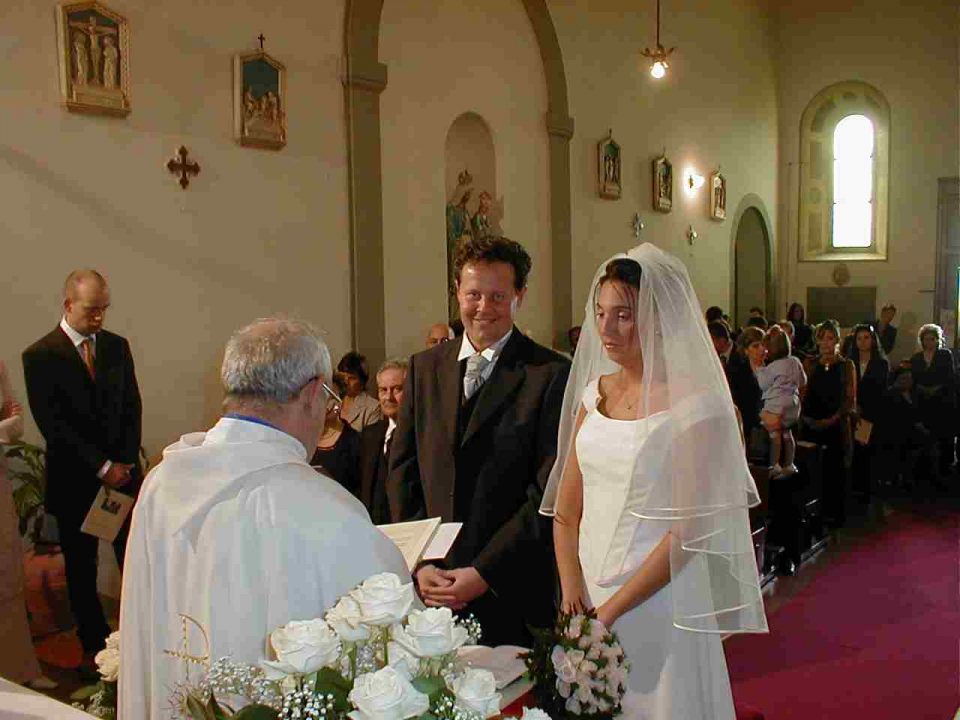What does the Catholic Church teach about marriage?

Marriage as a natural institution
Marriage is a common practice for all cultures of all ages. It is therefore a natural institution, something common to all humanity. At its most basic level, marriage is a union between a man and a woman for the purpose of procreation and mutual support, or love. Every spouse in a marriage renounces some rights on his life in exchange for rights on the life of the other spouse.
While divorce has existed throughout history, it has been rare until the last few centuries, which indicates that even in its natural form, marriage should be considered a permanent union.
The elements of a natural wedding
As p. John Hardon explains in his Pocket Catholic Dictionary, there are four elements common to natural marriage throughout history:
It is a union of opposite sexes.
It is a permanent union, which ends only with the death of a spouse.
Excludes a union with any other person as long as the marriage exists.
Its permanent nature and exclusivity are guaranteed by contract.
Thus, even on a natural level, divorce, adultery and "same-sex marriage" are not compatible with marriage and a lack of commitment means that no marriage has taken place.
Marriage as a supernatural institution
In the Catholic Church, however, marriage is more than a natural institution; he was elevated by Christ himself, in his participation in the wedding at Cana (John 2: 1-11), to be one of the seven sacraments. A marriage between two Christians, therefore, has a supernatural as well as natural element. While few Christians outside Catholic and Orthodox churches view marriage as a sacrament, the Catholic Church insists that marriage between two baptized Christians, provided it is entered into with the intention of entering into a true marriage, is a sacrament .
The ministers of the sacrament
How can a marriage between two non-Catholic but baptized Christians be a sacrament if a Catholic priest does not make the marriage? Most people, including most Roman Catholics, do not realize that the ministers of the sacrament are the spouses themselves. While the Church strongly encourages Catholics to marry in the presence of a priest (and to have a wedding mass, if both future spouses are Catholic), strictly speaking, a priest is not necessary.
The sign and effect of the sacrament
The spouses are the ministers of the sacrament of marriage because the sign - the external sign - of the sacrament is not the Mass of marriage or anything the priest can do but the marriage contract itself. This does not mean the marriage license that the couple receives from the state, but the vows that each spouse makes to the other. As long as each spouse intends to enter into a true marriage, the sacrament is celebrated.
The effect of the sacrament is an increase in sanctifying grace for the spouses, a participation in the divine life of God himself.
The union of Christ and his church
This sanctifying grace helps each spouse to help the other to progress in holiness, and helps them together to cooperate in God's redemption plan by raising children in the Faith.
In this way, sacramental marriage is more than a union of a man and a woman; it is, in fact, a type and symbol of the divine union between Christ, the bridegroom and his church, the bride. As married Christians, open to the creation of new life and committed to our mutual salvation, we participate not only in the creative act of God, but in the redemptive act of Christ.